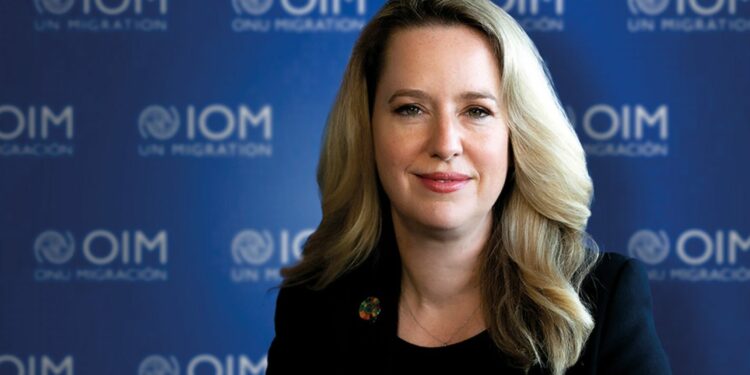The new head of the UN’s migration agency is in Africa on her inaugural trip. Durign a press conference in Addis Ababa, Tuesday (Oct. 10), Amy Pope advocated creating regular pathways to migration.
Read More: The African Renaissance –A Stage for Creativity and Technology
The International Organization for Migration (IOM) is “committed to the principle that humane and orderly migration benefits migrants and society.”
“Too often we talk about migration just as a problem that has to be solved”, Amy Pope said.
Speaking in Ethiopia, Pope tounched on the issue of migration to the Gulf States. Ethiopia announced in August a joint Saudi probe into alleged migrant killings.
“Vast numbers of Ethiopians are going through Yemen into the Gulf States because there are job opportunities. Now, one of the ways to tackle that is to make sure that we are putting protection at the center of all of our works so humanizing the faces, the stories, the experiences of people who are going and what is what they are experiencing,” the new head of the IOM added.
Read More: Inspiring Change Through Dreams & Heritage – Bisila Bokoko
Pope is the first woman Director general of the IOM. Amy Pope arrived in Addis Ababa on Sunday (Oct. 8). She met Monday (Oct. 09) with the African Union Commission chair.
She said she’d discuss ways to facilitate the movements of migrants and a better economic integration on the continent with member states.
“Over 80-percent of migration occurs in the continent and across the continent, she said.
“It is not to Europe or to the Gulf States, and while the stories that we often see highlighted or migration are migrants heading north, actually, both challenges and opportunities exist here as migrants cross the continent.”
Read More: From Trash to Treasure: The Remarkable Quest to Turn Plastic into Fuel
When laying out her vision for tackling migration last week, Pope stressed the importance of the economic benefits migration can have on the countries receiving migrants.
The IOM was established in 1951 to assist displaced persons, refugees and migrantsi n Europe. It then developed and broadened its scope to cover a wide range of actions oriented toward global migration management.









